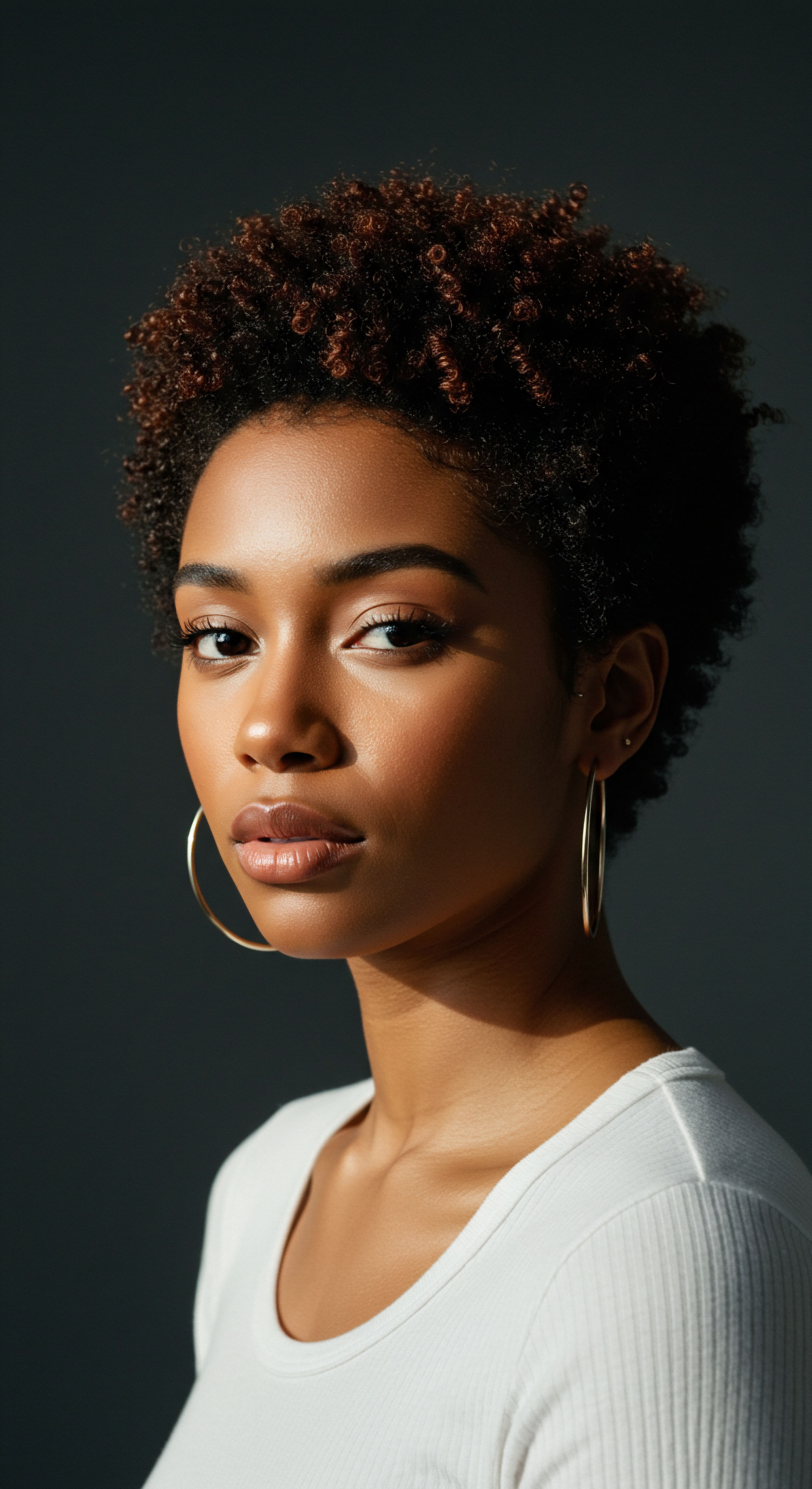
Roots
The quiet hum of life beneath our hair, the unseen world of the scalp microbiome, often remains a mystery. We tend to focus on what we see ❉ the sheen of a curl, the strength of a strand, the definition of a coil. Yet, beneath the surface, a delicate balance of microorganisms plays a significant role in the vitality of our scalp, influencing everything from comfort to growth.
Can the nourishment we offer our bodies truly reach this hidden ecosystem, shaping its delicate equilibrium? This question invites us to look beyond the topical and consider a more holistic connection, one that ties our internal landscape to the very foundation of our hair’s well-being.
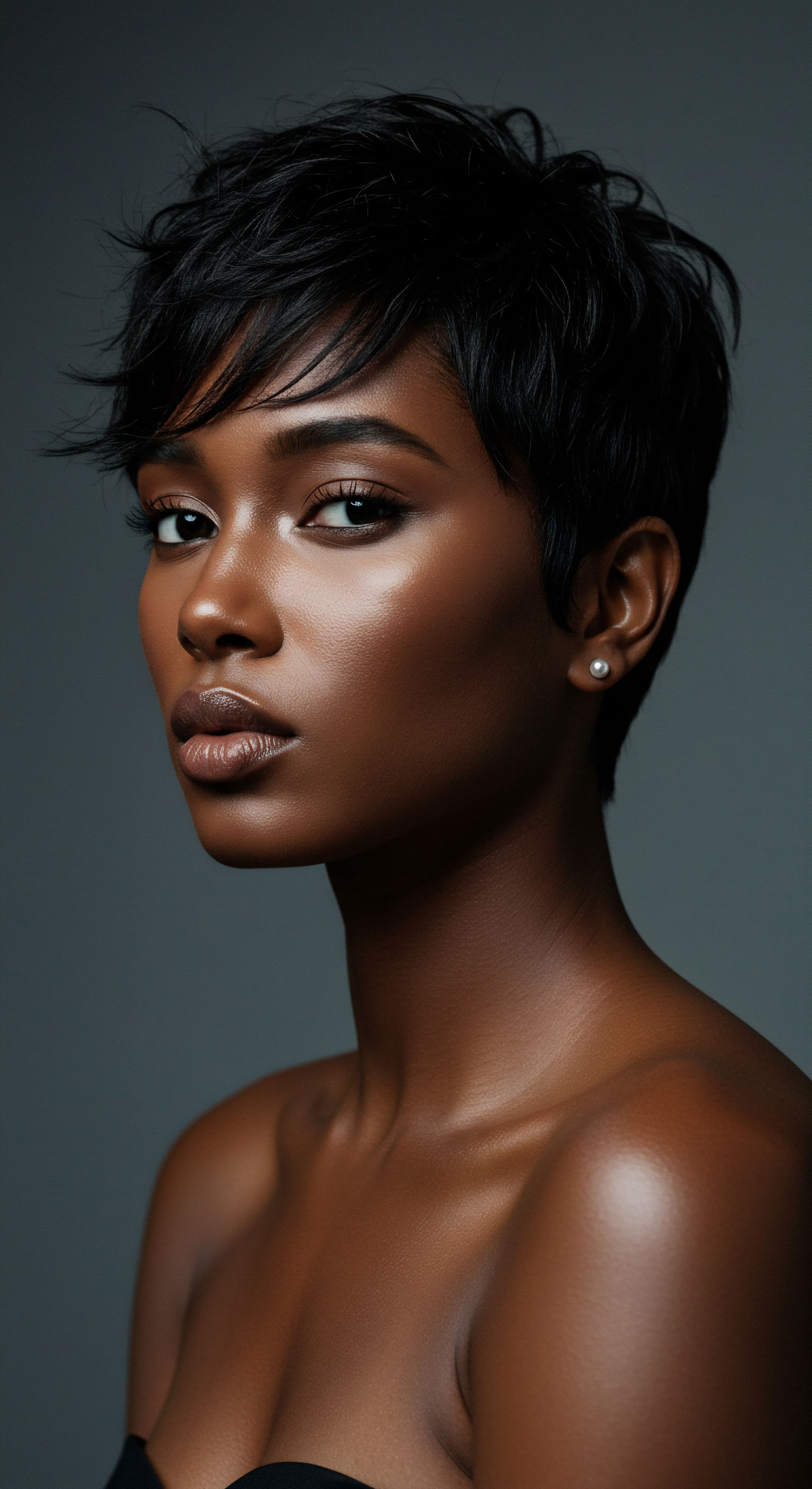
Unraveling Scalp Biology
Our scalp, much like the broader expanse of our skin, hosts a vibrant community of bacteria, fungi, and other tiny inhabitants. This collection, known as the scalp microbiome, maintains a dynamic relationship with its human host. These microorganisms contribute to vital functions, including immune response modulation and creating a barrier against unwelcome external elements. When this microbial balance is disturbed, it can lead to various scalp conditions, impacting hair health and comfort.
Factors such as age, gender, genetics, and even the environment, including pollution and ultraviolet light, all play a part in shaping the unique composition of this scalp ecosystem. Moisture levels, pH, and sebum content on the scalp also create distinct environments, influencing which microorganisms thrive.
The scalp’s hidden microbial world, a delicate balance of tiny life, profoundly influences hair vitality and overall comfort.
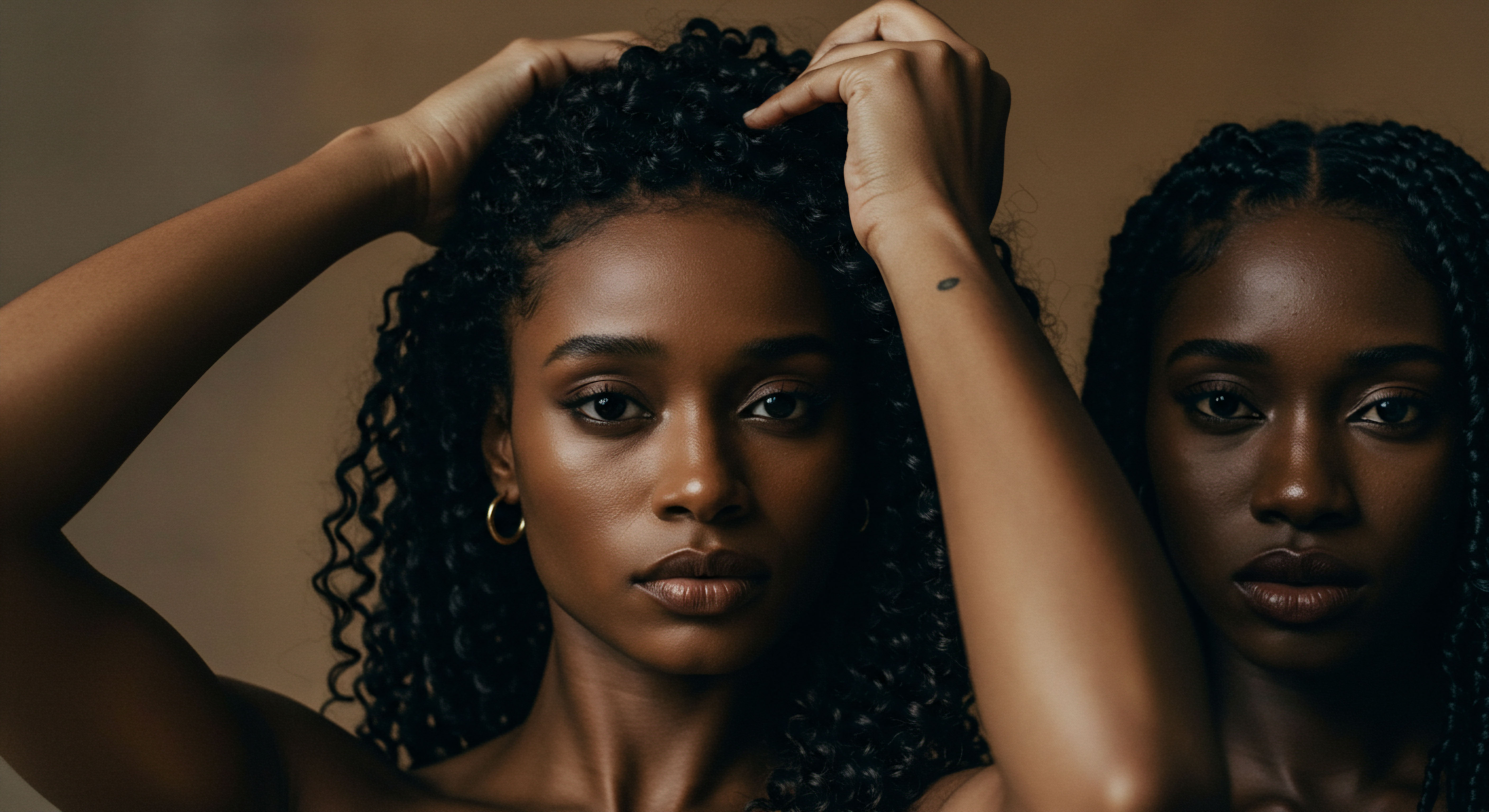
Understanding Scalp Microbes
Among the predominant residents on the scalp are certain yeasts of the Malassezia genus, particularly Malassezia restricta and Malassezia globosa, which can represent a substantial portion of the fungal population. Common bacterial species found on the scalp include Staphylococcus capitis, Staphylococcus epidermidis, and Cutibacterium acnes. These commensal organisms, while often beneficial, can contribute to imbalances when their populations grow unchecked. For example, an overgrowth of Malassezia yeasts is frequently associated with conditions like dandruff and seborrheic dermatitis, as these yeasts consume sebum and produce irritating compounds.
- Malassezia Yeasts ❉ These fungi are highly prevalent on the scalp, feeding on sebum and sometimes leading to irritation when overgrown.
- Staphylococcus Species ❉ Bacteria such as Staphylococcus capitis and Staphylococcus epidermidis are common bacterial residents on the scalp, playing a role in the microbial community.
- Cutibacterium Acnes ❉ This bacterium also resides on the scalp, contributing to the complex microbial environment.
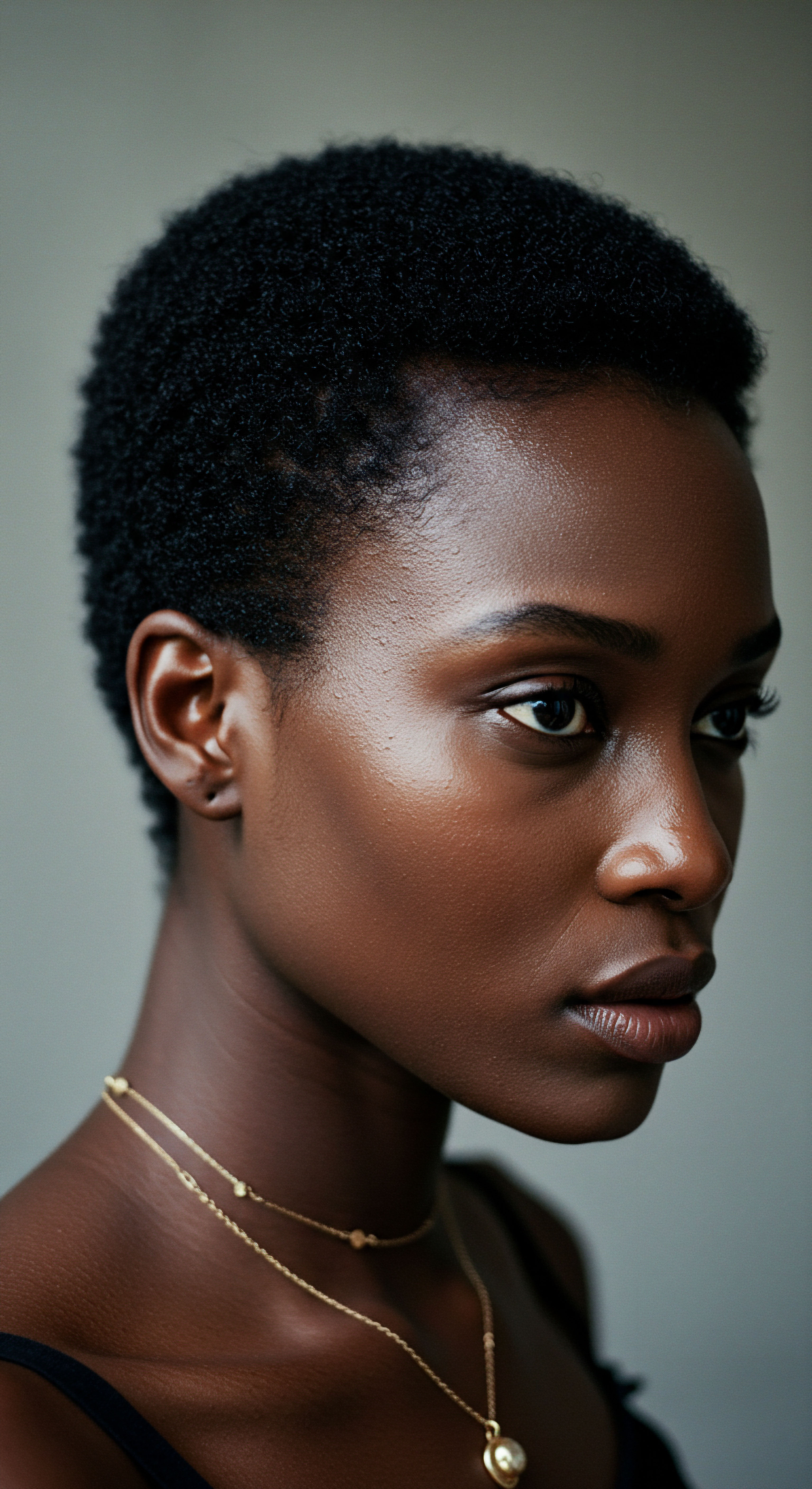
What Influences Scalp Microbe Composition?
The intricate composition of the scalp microbiome is a reflection of many influences. Genetic factors, for instance, play a significant role by determining individual characteristics such as sebum production, hair density, and follicle type. Individuals with an oily scalp, for example, may naturally host higher concentrations of lipophilic microbes like Malassezia. Conversely, those with drier skin might exhibit different microbial profiles.
Hair density itself affects the microenvironment, impacting moisture retention and the diversity of microbes. Furthermore, genetic predispositions to certain skin conditions, such as psoriasis, can significantly alter microbial balance, affecting overall scalp health. Beyond genetics, external factors like pollution, humidity, and even the products we use on our hair, contribute to this dynamic equilibrium.
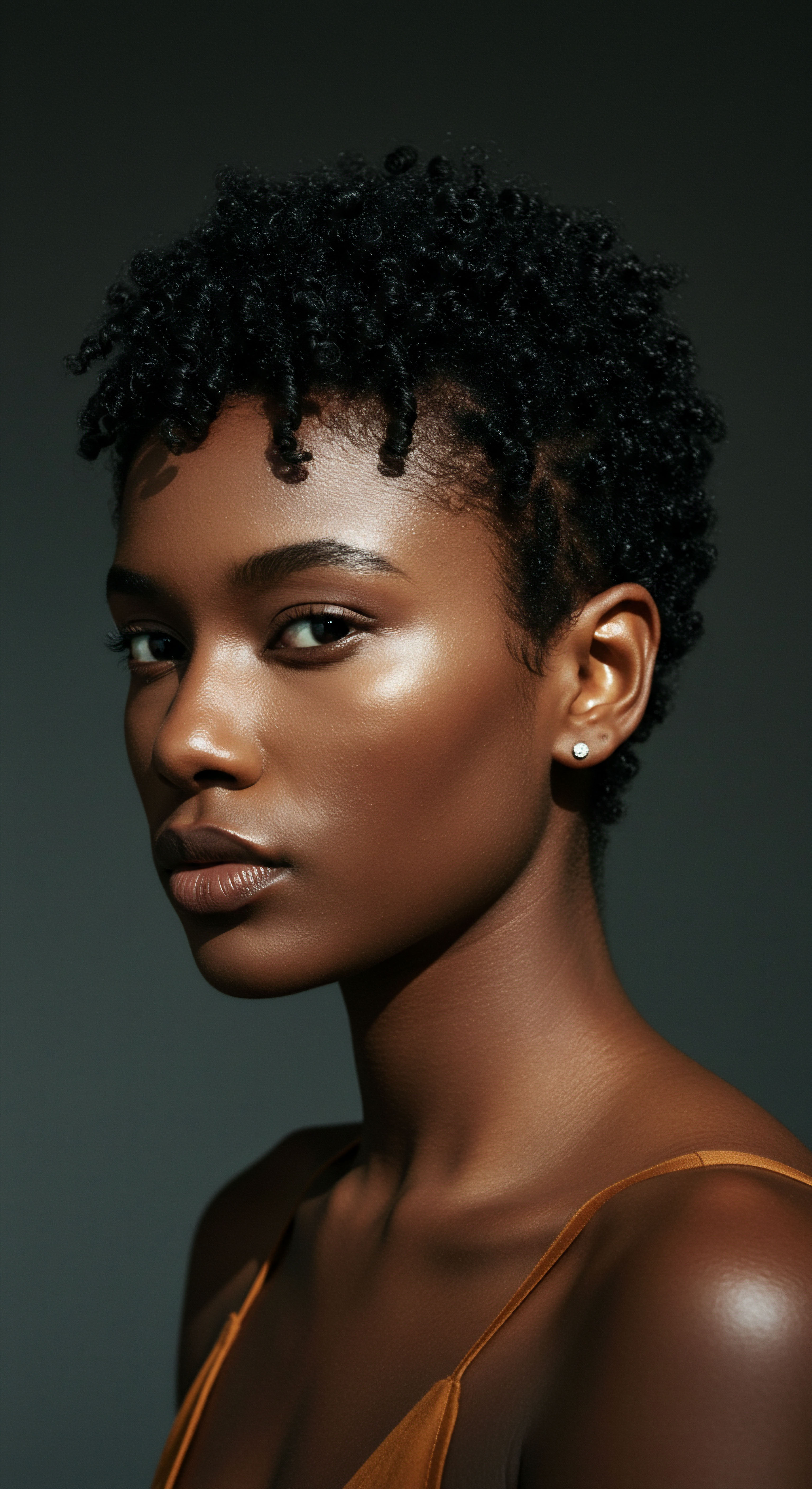
Ritual
Stepping into the realm of practical wisdom, we acknowledge the quiet understanding that many of us hold about our bodies ❉ what we consume shapes our well-being. This intuition extends to the delicate environment of our scalp. The daily choices we make at the table, the sustenance we offer our internal landscape, reverberate through our systems, eventually reaching the very skin that cradles our hair. Here, we delve into how these nourishing rituals, often passed down through generations or discovered through personal observation, can truly influence the subtle harmony of the scalp microbiome, moving from foundational knowledge to applied care with gentle guidance.
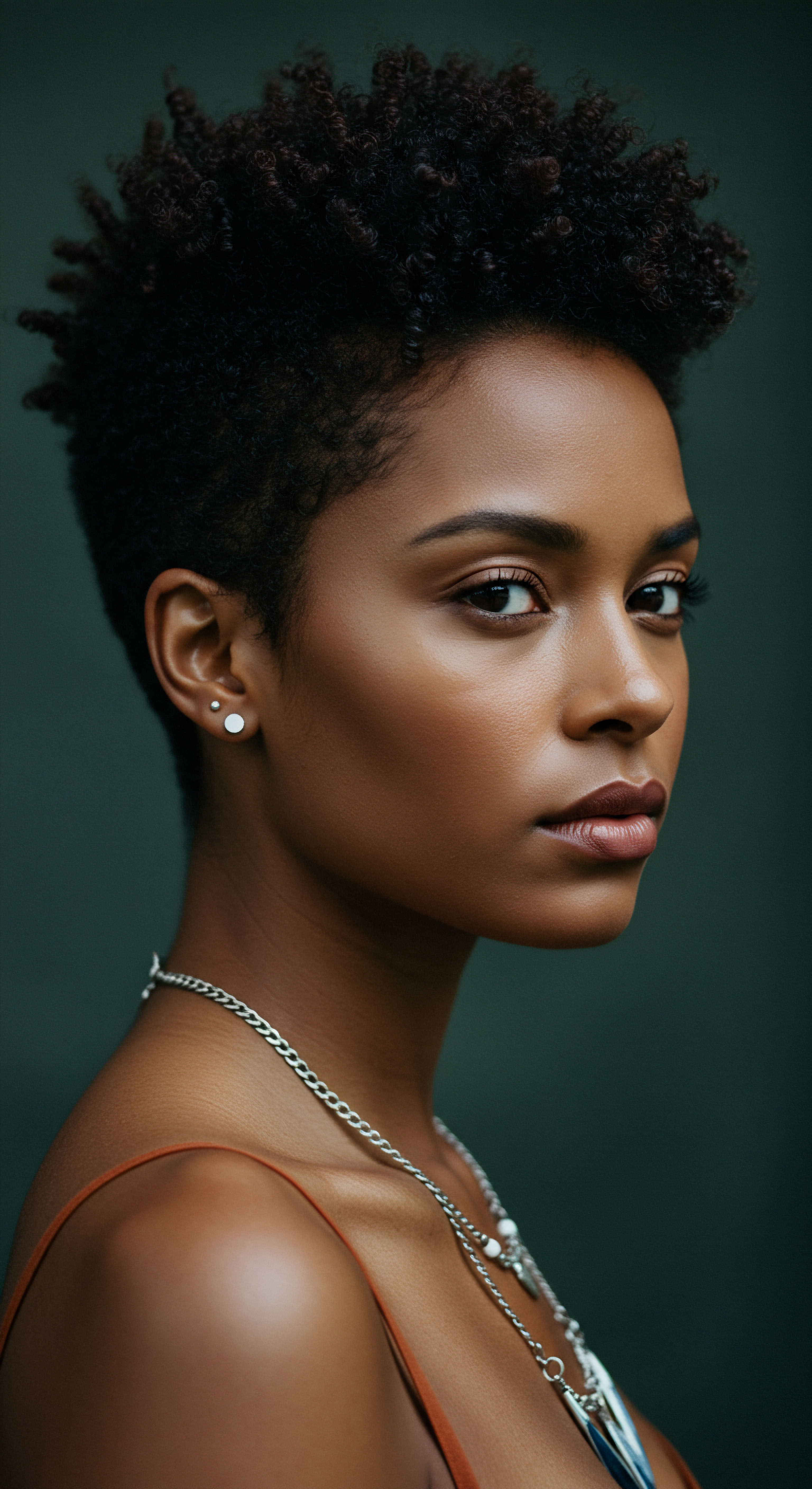
Dietary Choices and Scalp Harmony
The relationship between diet and the scalp microbiome is a subject of growing scientific interest. While the scalp is a distinct ecosystem, it is not isolated from the body’s internal state. The nutrients we consume, or perhaps the lack thereof, can significantly impact the overall health of our body, including the skin and scalp.
A diet rich in fats and sugars, for instance, can provide a favorable environment for pro-inflammatory microbes, potentially disrupting the scalp’s microbial balance. Conversely, incorporating beneficial elements such as probiotics may support the growth of advantageous microbial species.
Our daily dietary choices hold sway over the subtle balance of microorganisms on our scalp.
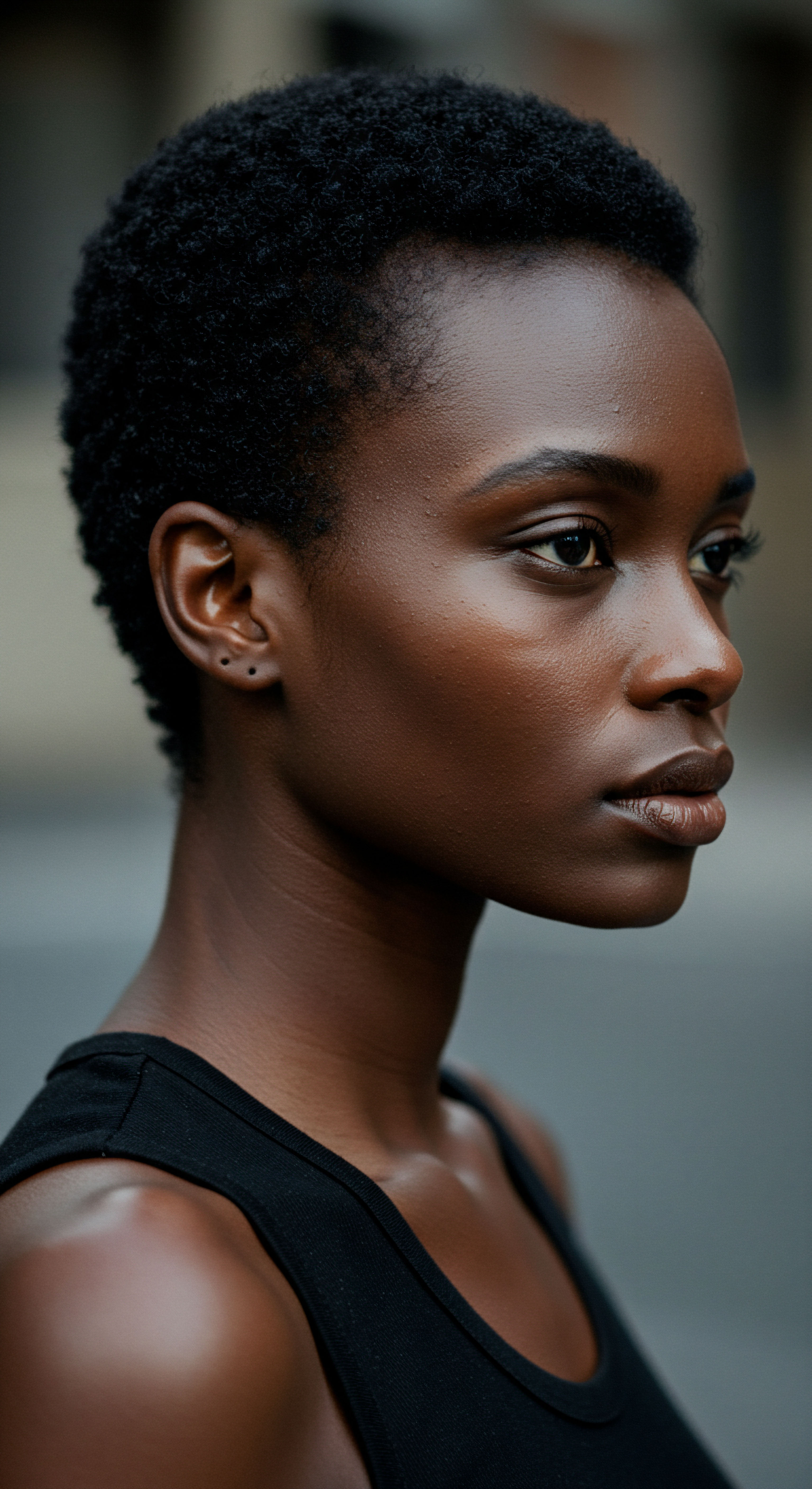
How Specific Foods Influence Scalp Health
Certain food components have a direct bearing on the gut microbiome, which in turn communicates with the skin and scalp through what is known as the gut-skin axis. This bidirectional relationship means that imbalances in the gut can manifest as issues on the skin, including the scalp. For example, a diet high in refined sugars and processed foods can lead to systemic inflammation and an altered gut microbiome, potentially exacerbating scalp conditions. Conversely, foods rich in antioxidants, vitamins, and healthy fats can support a balanced internal environment, which may translate to a healthier scalp.
Consider the role of Short-Chain Fatty Acids (SCFAs), produced by beneficial gut bacteria from dietary fiber. These compounds possess anti-inflammatory properties and are vital for maintaining gut barrier integrity. A robust gut barrier helps prevent toxins and bacteria from entering the bloodstream, which could otherwise trigger systemic inflammation and affect skin health.
| Dietary Component Probiotics |
| Associated Foods Yogurt, Kefir, Kimchi, Sauerkraut |
| Potential Scalp Impact May support beneficial microbial species, modulate inflammation, and improve barrier function. |
| Dietary Component Prebiotics (Fiber) |
| Associated Foods Garlic, Onions, Bananas, Oats, Legumes |
| Potential Scalp Impact Feeds beneficial gut bacteria, leading to SCFA production that supports overall skin health. |
| Dietary Component Omega-3 Fatty Acids |
| Associated Foods Oily fish (salmon, mackerel), Flaxseeds, Walnuts |
| Potential Scalp Impact Strengthens skin's lipid barrier, reduces dryness, and may lessen inflammation. |
| Dietary Component Antioxidants |
| Associated Foods Colorful fruits, Vegetables, Green tea |
| Potential Scalp Impact Combats oxidative stress, which can contribute to inflammation and aging. |
| Dietary Component Zinc |
| Associated Foods Oysters, Beef, Eggs, Legumes, Pumpkin seeds |
| Potential Scalp Impact Maintains scalp condition, supports hair follicle health, and aids in tissue repair. |
| Dietary Component A balanced diet with these components can support scalp microbiome harmony. |

Practical Dietary Adjustments for Scalp Wellness
For those seeking to nurture their scalp from within, mindful dietary adjustments can serve as a gentle yet powerful tool. Incorporating a variety of whole, unprocessed foods forms the foundation. Think of vibrant fruits and vegetables, which deliver a spectrum of antioxidants and vitamins.
Lean proteins provide the building blocks for hair, while healthy fats support overall skin integrity. Fermented foods, such as kimchi or kefir, can introduce beneficial bacteria to the gut, thereby potentially influencing the scalp environment.
Limiting the consumption of highly processed foods, excessive sugars, and unhealthy fats can also contribute to a more balanced internal landscape. These dietary elements are often linked to inflammatory responses that can disrupt microbial harmony throughout the body, including on the scalp. While individual responses vary, a consistent approach to nourishing the body with nutrient-dense foods offers a supportive framework for scalp well-being.
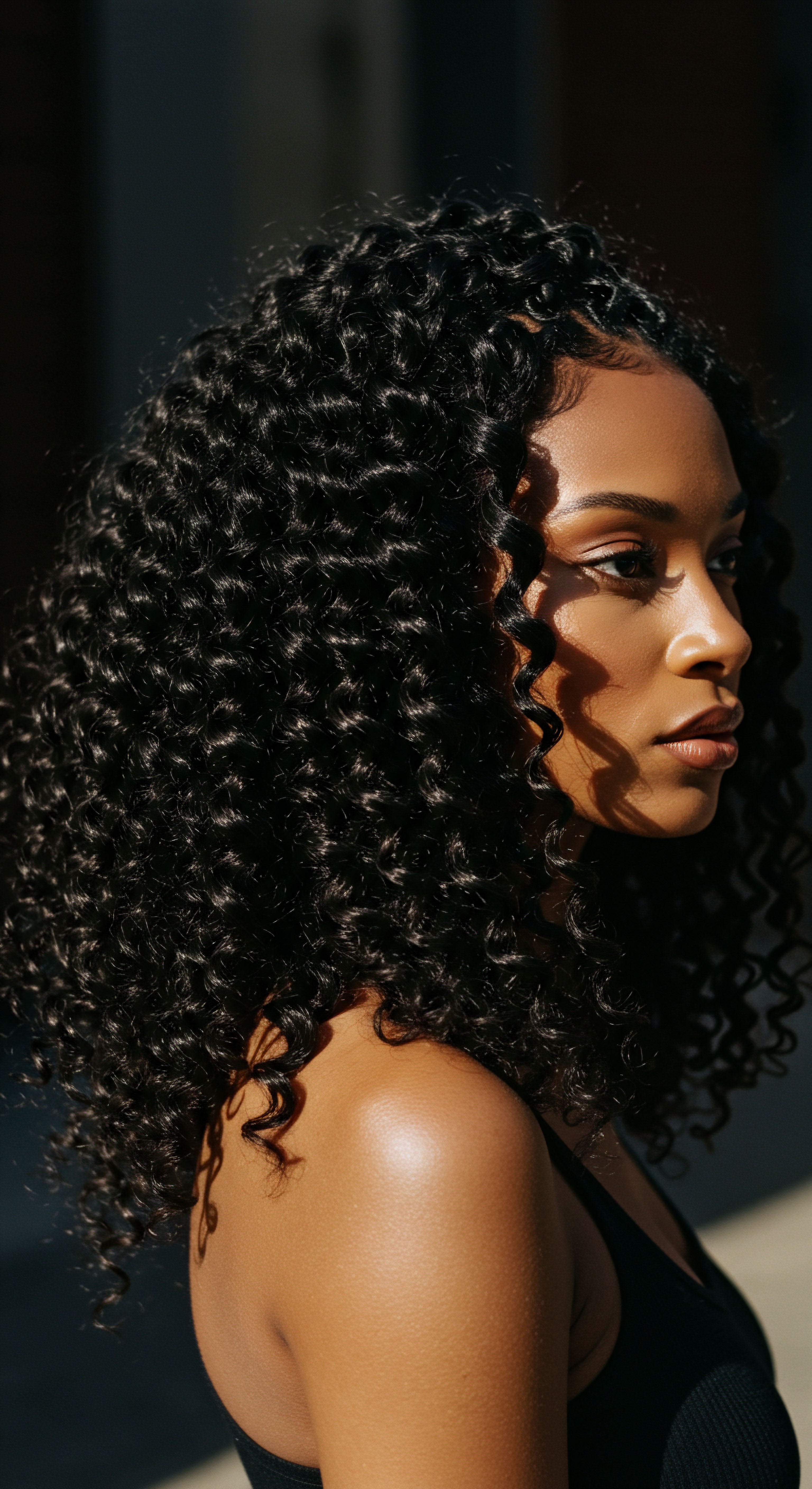
Relay
The intricate dance between our internal systems and the external world holds profound implications for our scalp’s unseen inhabitants. As we delve deeper into the interplay of biology, culture, and personal habits, a more sophisticated understanding of the scalp microbiome emerges. How do the nuanced signals from our gut, shaped by ancestral dietary wisdom and modern nutritional insights, truly resonate with the microscopic life that cradles our hair? This exploration invites us to consider the less apparent complexities, where science and cultural practices converge, offering a deeper insight into the remarkable interconnectedness of our being.

The Gut-Skin-Scalp Axis Uncovered
The concept of the gut-skin axis, a communication pathway linking the digestive system with the skin, has gained significant attention. Recent studies confirm this connection extends to the scalp and hair health. An imbalance in the gut microbiome, often termed dysbiosis, can influence inflammatory responses throughout the body.
When the gut barrier is compromised, sometimes referred to as “leaky gut,” toxins and bacteria may enter the bloodstream, triggering systemic inflammation. This inflammation can manifest on the skin, contributing to conditions like acne, eczema, psoriasis, and notably, affecting the scalp.
Research suggests that specific dietary patterns can alter the gut microbiota composition, which in turn impacts this axis. For instance, Western diets, often characterized by high sugar and fat content and low fiber, are associated with reduced gut microbial diversity and increased inflammation. Conversely, diets rich in diverse plant-based foods, like the Mediterranean diet, tend to support a more varied and beneficial gut microbiome.

Does Dietary Intervention Influence Hair Loss?
The link between diet, the microbiome, and hair loss is a complex and evolving area of study. While nutrient deficiencies are well-established causes of hair changes and loss, the role of dietary modulation of the microbiome in hair conditions, particularly alopecia, is an area of active research.
One compelling area of investigation centers on the potential for probiotics to influence hair health. A study published in the journal Nutrients, conducted by biotech company Darwin Bioprospecting Excellence, explored the effect of a probiotic blend on individuals with androgenetic alopecia (AGA). This study assessed a combination of Lactiplantibacillus strains, specifically L. plantarum DCn_07, L.
plantarum DCn_06, and L. pentosus DCn1_05, or a placebo, on 136 individuals over 16 weeks. The group receiving the probiotic exhibited a significantly higher abundance of Lactobacillus species. Crucially, they also demonstrated a notable reduction in hair shedding and an increase in hair growth.
The authors concluded that these results underscore the importance of gut lactobacilli in the management of alopecia. This finding suggests a direct connection between gut microbial composition, influenced by diet, and observable improvements in hair growth and reduced shedding.
The connection between diet, gut microbes, and hair health is more profound than often perceived, with emerging evidence pointing to dietary influences on scalp conditions.
Further evidence from case reports supports this intricate connection. In some instances, individuals undergoing fecal microbiota transplants (FMT) for gastrointestinal issues experienced unexpected improvements in coexisting alopecia areata. While FMT is a drastic intervention and not a direct dietary change, these cases highlight the powerful influence of gut microbial composition on autoimmune hair loss. Animal studies have also shown promising results, where supplementing mice with specific probiotic strains led to increased hair growth and improved hair follicle development.
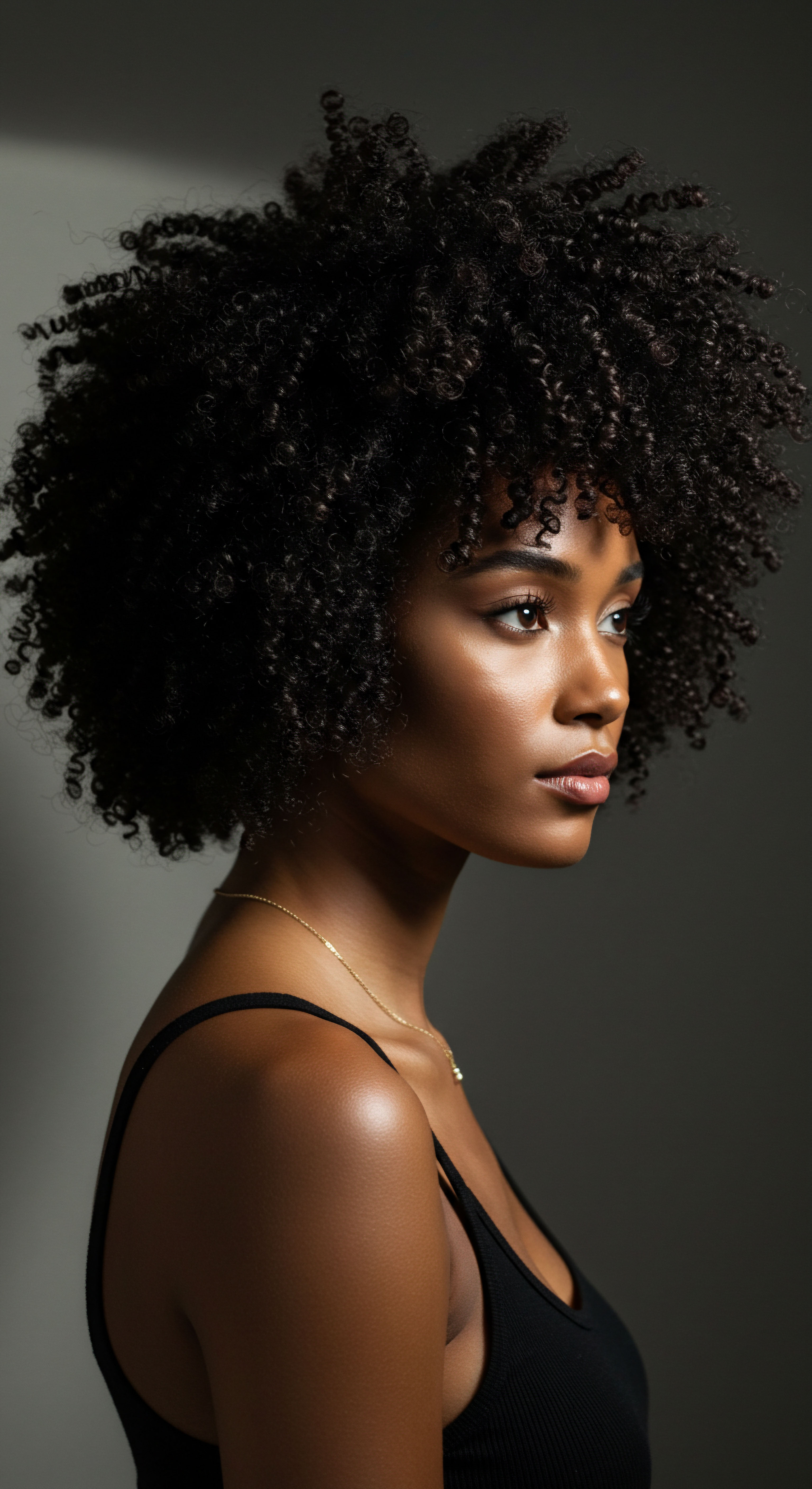
Cultural Dietary Patterns and Scalp Wellness
Across diverse cultures, traditional dietary patterns often emphasize whole, unprocessed foods, fermented ingredients, and a rich array of plant-based sustenance. These dietary approaches, honed over generations, may inadvertently support a balanced microbiome, contributing to overall health, including that of the scalp. For example, the traditional Mediterranean diet, with its focus on fruits, vegetables, whole grains, and healthy fats, has been associated with a lower risk of inflammatory conditions and supports a diverse gut microbiome.
Conversely, the widespread adoption of modern Western dietary patterns, characterized by high intake of refined sugars, unhealthy fats, and processed foods, has been linked to decreased microbial diversity in the gut and increased systemic inflammation. This shift in dietary habits, a departure from ancestral eating, may contribute to the rise in various inflammatory skin and scalp conditions.
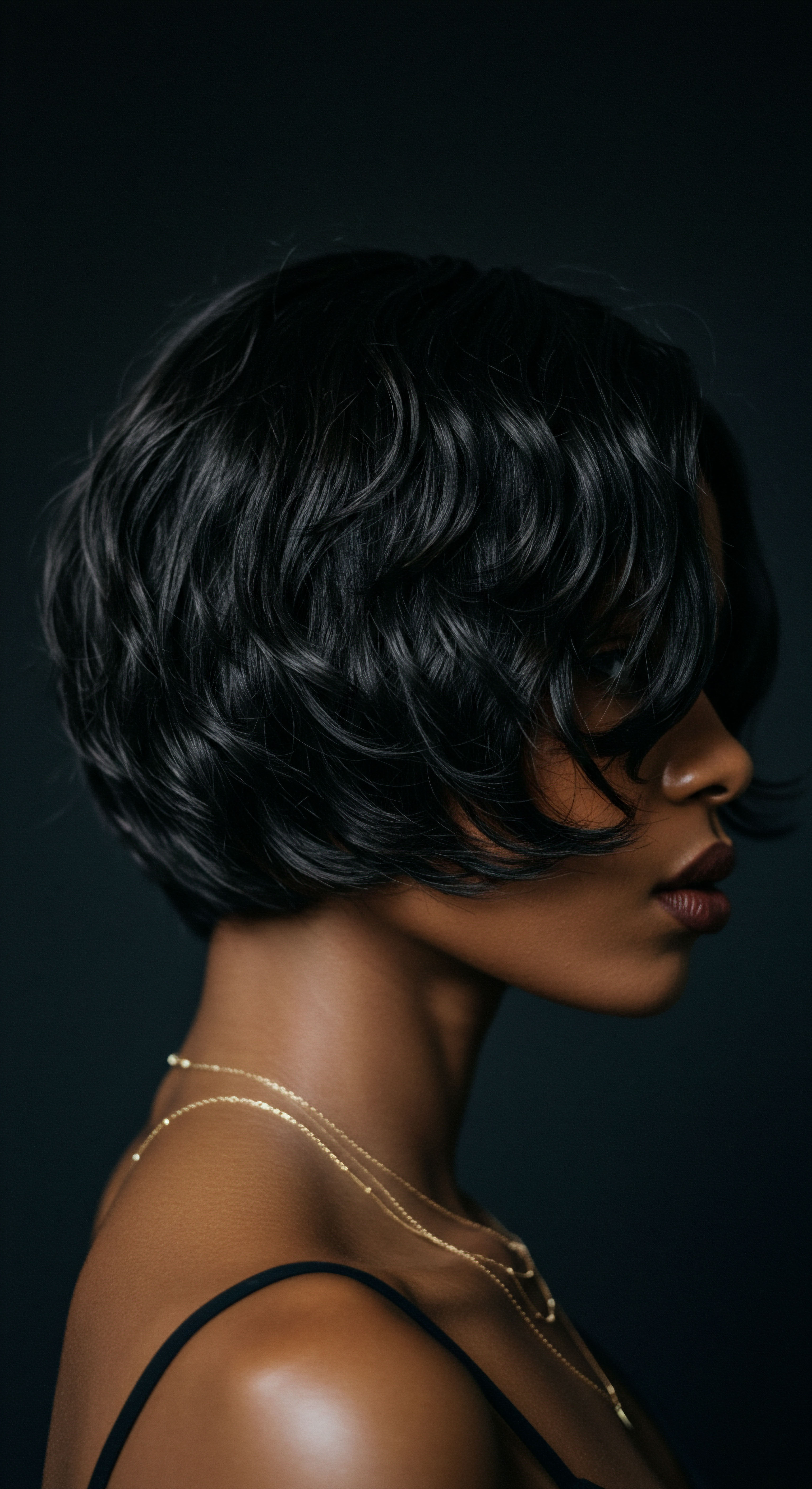
What Are the Specific Dietary Factors That May Disrupt Scalp Microbiome Balance?
Understanding which dietary factors might tip the scales towards an imbalanced scalp microbiome is essential for informed choices. Research indicates several culprits:
- High Sugar Intake ❉ Diets abundant in refined sugars can fuel the growth of pro-inflammatory microbes and contribute to systemic inflammation, potentially impacting scalp health.
- Excessive Saturated and Trans Fats ❉ These fats can alter gut microbiota composition in unfavorable ways and may increase sebum production on the scalp, creating a less balanced environment.
- Processed Foods and Additives ❉ Such foods often lack beneficial fibers and nutrients while containing ingredients that can disrupt gut integrity and microbial diversity.
- Alcohol Consumption ❉ Excessive alcohol intake can negatively impact gut health and has been linked to worsening conditions like seborrheic dermatitis.
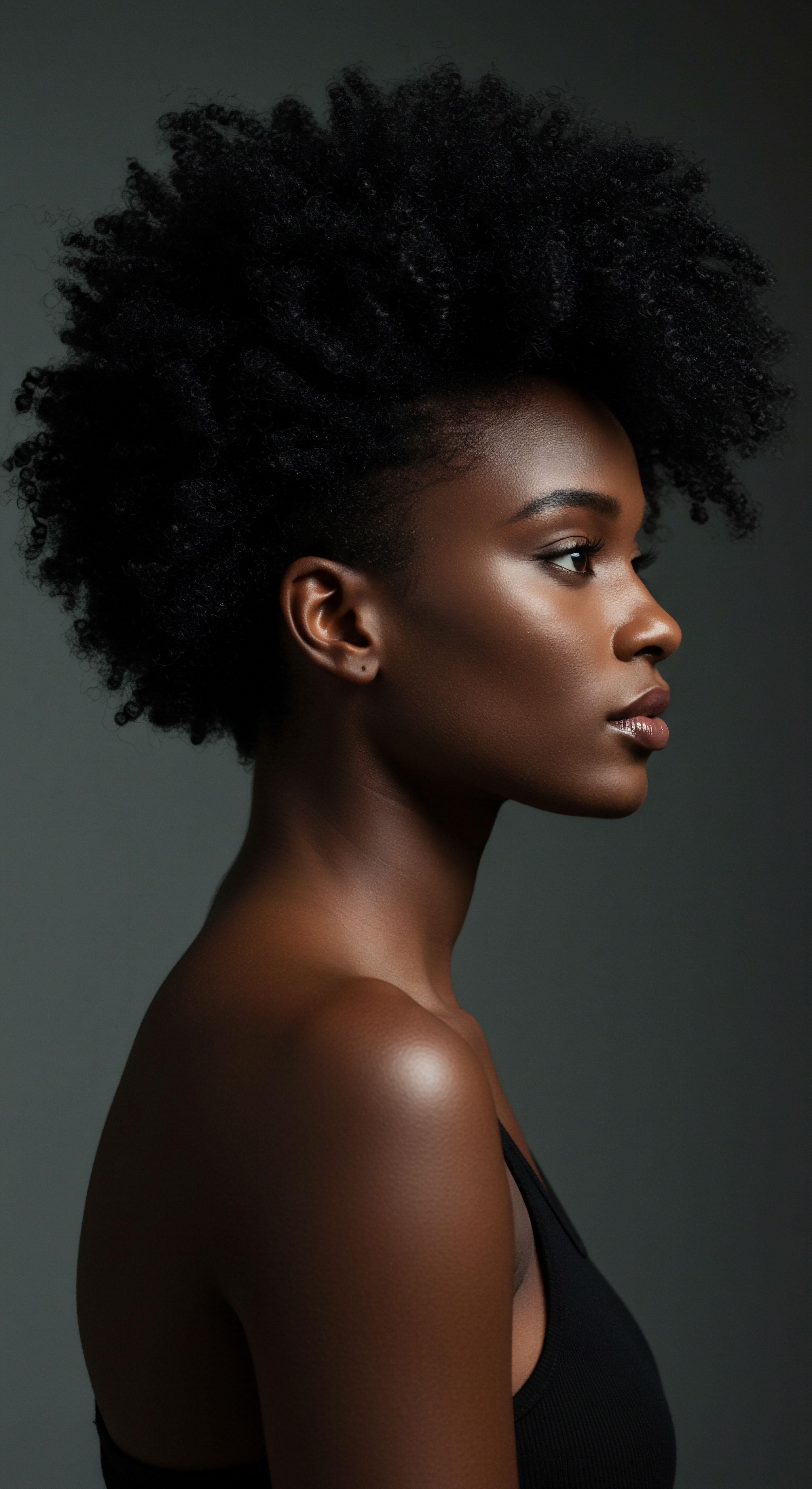
How Can a Balanced Diet Support a Healthy Scalp Environment?
A balanced diet, thoughtfully constructed, offers a foundational support for a thriving scalp microbiome. The synergy of various nutrients contributes to an internal environment where beneficial microbes can flourish, and inflammatory responses are kept in check. This proactive approach focuses on nourishing the body from within, providing the necessary building blocks for healthy hair and scalp.
- Nutrient Density ❉ Prioritize foods rich in vitamins, minerals, and antioxidants, such as colorful fruits, leafy greens, nuts, and seeds. These provide essential cofactors for cellular health and immune function, supporting the scalp’s barrier.
- Fiber Richness ❉ Consume a variety of dietary fibers from whole grains, legumes, fruits, and vegetables. These act as prebiotics, feeding beneficial gut bacteria and promoting the production of short-chain fatty acids that influence systemic inflammation.
- Healthy Fats ❉ Include sources of omega-3 fatty acids like fatty fish, flaxseeds, and chia seeds. These fats contribute to cell membrane integrity and possess anti-inflammatory properties that can soothe an irritated scalp.
- Probiotic Foods ❉ Incorporate fermented foods like yogurt, kefir, and kimchi into your diet. These introduce live beneficial bacteria that can contribute to a diverse and resilient gut microbiome, with positive ripple effects on the scalp.
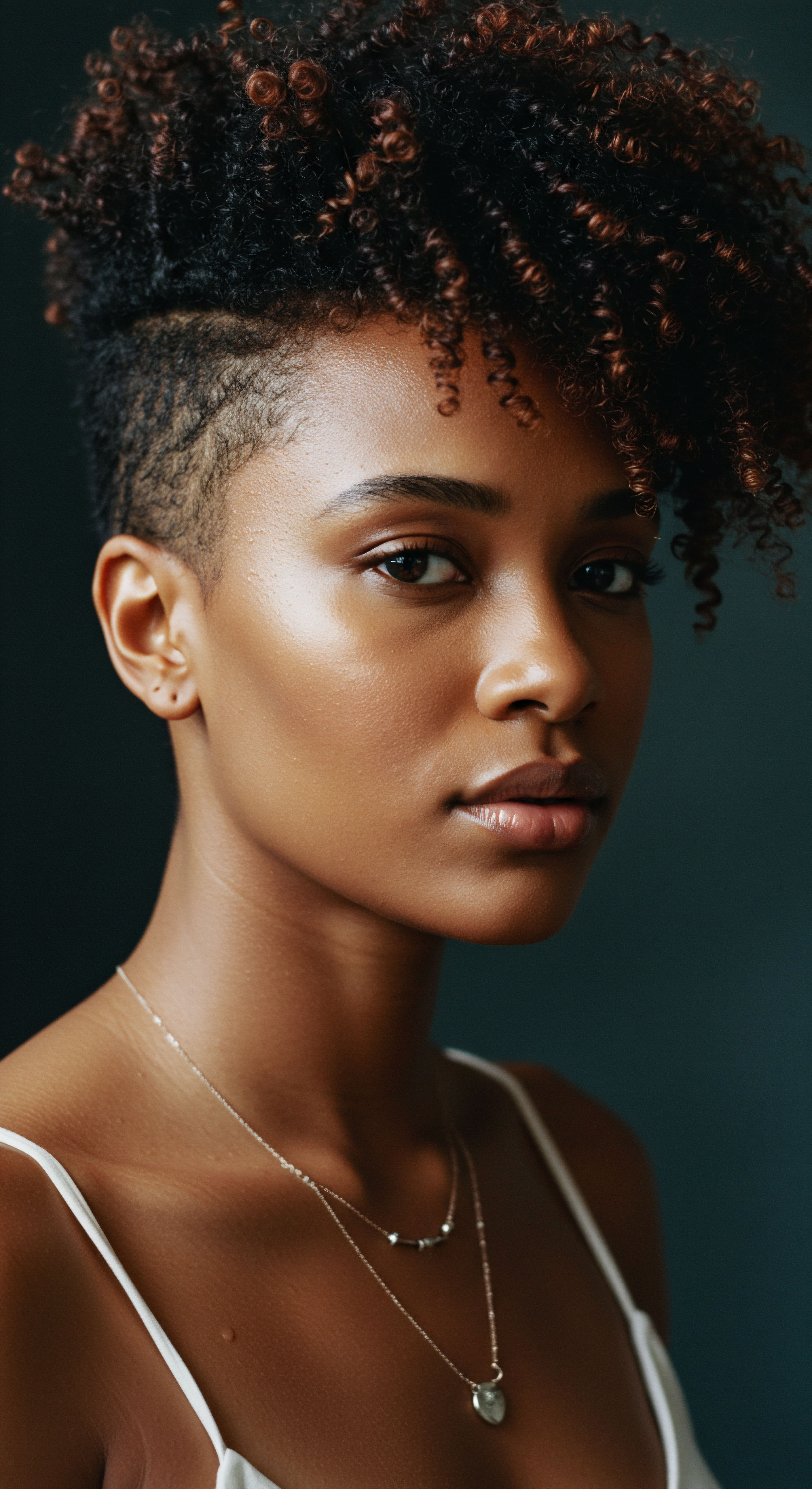
Reflection
As we conclude our exploration, the delicate balance of the scalp microbiome reveals itself not as an isolated entity, but as a responsive mirror to our internal state. The whispers of ancient wisdom, the precision of modern science, and the quiet power of mindful nourishment all point towards a profound truth ❉ the health of our hair, and the scalp it springs from, is deeply connected to the life we cultivate within. It is a gentle reminder that true radiance often begins with honoring the intricate systems that sustain us, a testament to the profound connection between our plate and our crown.
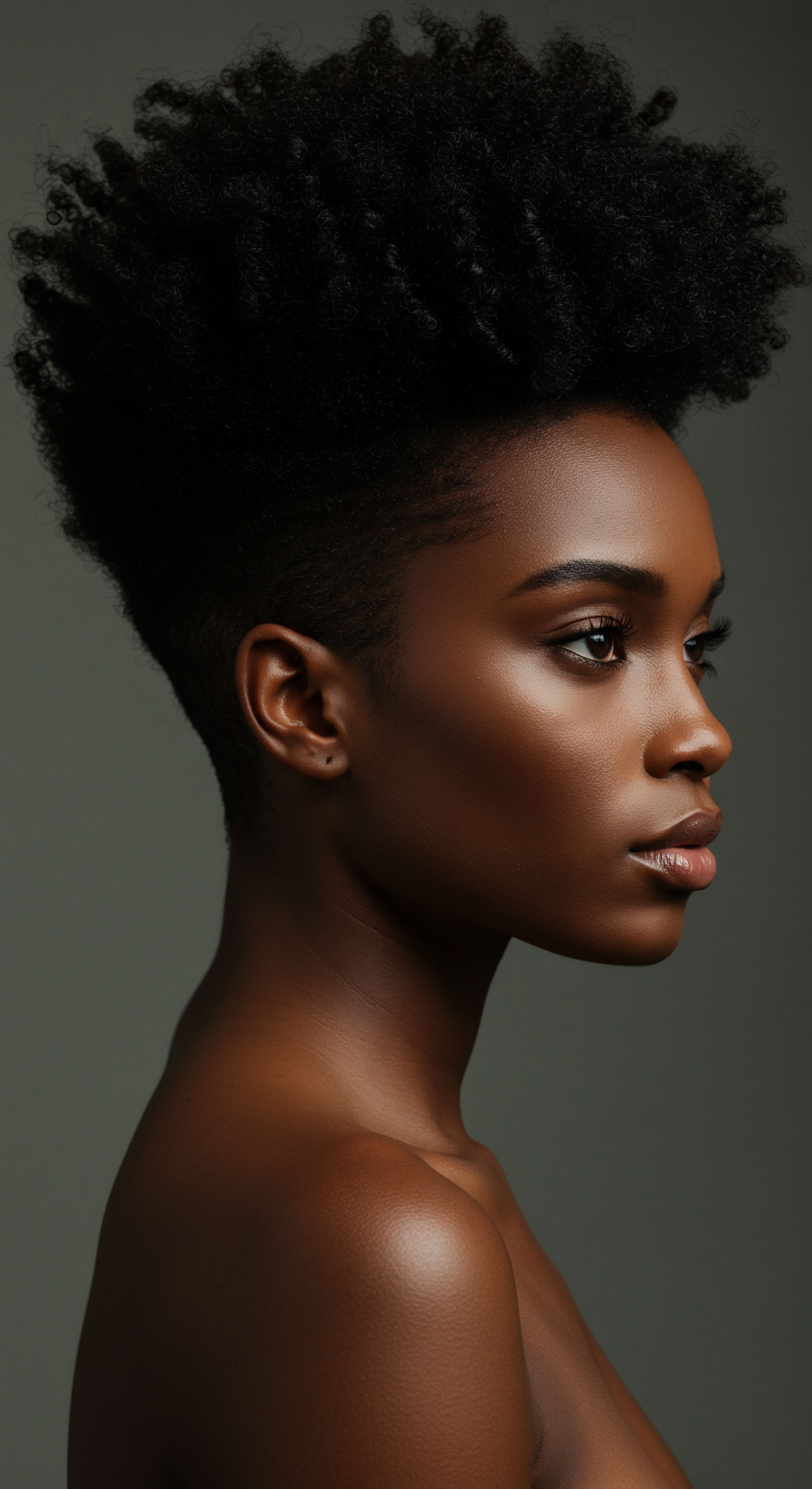
References
- Mijaljica, D. Townley, J. P. Spada, F. & Harrison, I. P. (2024). The heterogeneity and complexity of skin surface lipids in human skin health and disease. Progress in Lipid Research, 93, 101264.
- Rinaldi, F. Pinto, D. Giuliani, G. & Sorbellini, E. (2019). Microbiome and Diet Impact in Scalp Disorder ❉ The Example of Alopecia Areata. International Journal of Experimental Biology, 2(1), 001-009.
- De Luca, M. & Valente, M. (2024). Beauty from within ❉ A comprehensive review on interplay between gut health and skin. International Journal of Research in Medical Sciences, 12(8).
- Kriegel, M. & Callewaert, C. (2025). Gut-Skin Connection ❉ How Your Microbiome Impacts Autoimmune Skin Diseases. Mount Sinai Health System.
- O’Neill, C. A. Monteleone, G. McLaughlin, J. T. & Campbell, B. J. (2016). The gut-skin axis ❉ current knowledge of the interrelationship between microbial dysbiosis and skin conditions. Frontiers in Microbiology, 7, 1069.
- Trüeb, R. M. (2021). Nutrition for Healthy Hair ❉ Guide to Understanding and Proper Practice. Springer.
- Dy Dermatology Center. (2020). Eating for Healthy Hair.
- MD Trichology Advanced Hair Care. (2025). Do Hormones Affect Hair Health? Evidence-Base Nutritional Guide For Healthy Hair.
- NutraIngredients.com. (2025). Exploring the gut-skin axis for skin care innovation.
- Treatment Rooms London. (2025). The Link Between Gut Health and Skin Conditions.
- ClinMed International Library. (2019). Seborrheic dermatitis and oily dandruff ❉ how to get rid of them for good?
- Trüeb, R. M. (2022). Influence of Nutrition, Food Supplements and Lifestyle in Hair Disorders. Indian Dermatology Online Journal, 13(6), 721–724.
- Rupa Health. (2023). Integrative and Complementary Approaches to Seborrheic Dermatitis.
- Goldberg, L. J. & Ragi, L. S. (2015). Nutraceuticals for Androgenetic Alopecia. The Journal of Clinical and Aesthetic Dermatology, 8(5), 36–42.
- Townsend, N. Hazan, A. & Dell’Acqua, G. (2023). New Topicals to Support a Healthy Scalp While Preserving the Microbiome ❉ A Report of Clinical and in Vitro Studies. Journal of Clinical and Aesthetic Dermatology, 16(10 Suppl 1), S4–S11.
- Charlotte Rye. (2025). The Gut-Skin Axis ❉ Nutrition Supports Healthy Skin Barrier.
- Rinaldi, F. Pinto, D. & Sorbellini, E. (2019). Microbiome and Diet Impact in Scalp Disorder ❉ The Example of Alopecia Areata. Journal of Nutritional Medicine and Diet Care, 5(1), 037.
- Rinaldi, F. Pinto, D. Giuliani, G. & Sorbellini, E. (2019). Diet importance in microbiome changing related to scalp disease. ResearchGate.
- Ablon, G. (2015). A 3-month, randomized, double-blind, placebo-controlled study evaluating the ability of an extra-strength marine protein supplement to promote hair growth and decrease shedding in women with self-perceived thinning hair. Dermatology Research and Practice, 2015, 841570.
- Davis, M. G. Piliang, M. P. Bergfeld, W. F. Caterino, T. L. Fisher, B. K. Sacha, J. P. & Schwartz, J. R. (2021). Scalp application of antioxidants improves scalp condition and reduces hair shedding in a 24-week randomized, double-blind, placebo-controlled clinical trial. International Journal of Cosmetic Science, 43(S1), 14-25.